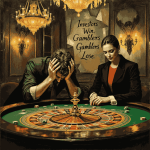
Navigating Behavioral Pitfalls: Unraveling What is Overconfidence Bias
Dec 14, 2024
Introduction: Confidence or Catastrophe?
Overconfidence bias isn’t just an intellectual hiccup; it’s a cognitive beast prowling through your brain, whispering sweet lies about your infallibility. In investing, the silent assassin promises brilliance while steering you toward ruin. To conquer it, you must understand its cunning ways, see it in action across history, and learn the art of resistance. Consider this your cognitive psychology crash course, infused with legendary investors’ wisdom and the erratic rhythm of mass psychology.
What Is Overconfidence Bias? A Flaw Woven Into Our Psyche
Overconfidence bias convinces us we’re sharper, smarter, and luckier than we are. Psychologists call this a positive illusion, but it’s more like a death wish in the markets. Here’s how it sneaks into your mind:
- Overestimating Knowledge: You think you’re a stock oracle when you’re barely a dabbler.
- Underestimating Risk: You dismiss the storm clouds because sunshine feels inevitable.
- The Illusion of Control: You believe you can steer markets when, in truth, they steer you.
- Superior Judgment Fallacy: You trust your instincts over data, convinced the herd is wrong, even when it’s right.
The Danger Zone: How Overconfidence Bias Wrecks Investors
History’s financial tombstones are engraved with the names of overconfident investors. Here’s how it kills portfolios:
- Excessive Trading: Fueled by hubris, overconfident investors trade compulsively, slashing their profits with transaction costs and bad bets.
- Under-Diversification: Betting on a “sure thing” often ends with that thing becoming worthless.
- Ignoring Data: Overconfidence blinds investors to inconvenient facts, leading to poor decisions.
- Attributing Success to Skill: Luck gets misinterpreted as a genius, setting the stage for catastrophic missteps.
Historical Blunders: Overconfidence in Action
- The Icarus Investors: The dot-com bubble of the late 1990s saw swarms of investors soaring toward fantastical returns, oblivious to the flimsy foundations of their tech stocks. The crash that followed sent them plummeting like Icarus, wax wings melted by their hubris.
- Napoleon’s Folly: Napoleon Bonaparte’s ill-fated 1812 invasion of Russia wasn’t just a military disaster but an overconfidence bias on a grand scale. His disregard for logistics and harsh winters led to the decimation of his army—a stark reminder of the perils of ignoring risks.
- The Housing Bust of 2008: Investors and institutions believed housing prices could only rise. Their misplaced confidence fueled reckless lending, turning the dream of homeownership into the nightmare of a global financial crisis.
Cognitive Psychology Speaks: Why We Fall for Overconfidence
Overconfidence bias isn’t just arrogance—it’s deeply embedded in our wiring:
- Dunning-Kruger Effect: The less we know, the more we believe we’re experts. Novice investors are particularly prone to this fallacy.
- Confirmation Bias: We cherry-pick information that supports our beliefs, ignoring contradictory evidence.
- Optimism Bias: Evolution favours optimism—it kept us alive in the wild—but it skews our market risk assessment.
Battling the Beast: Tools for the Rational Investor
Defeating overconfidence bias requires humility, strategy, and relentless self-awareness. Here’s how to arm yourself:
- Practice Brutal Self-Honesty: Question your assumptions. What if you’re wrong?
- Adopt Probabilistic Thinking: Embrace uncertainty and prepare for multiple outcomes.
- Seek Diverse Perspectives: Surround yourself with dissenters who challenge your views.
- Use Systematic Strategies: Rely on data-driven approaches rather than gut feelings.
- Embrace Humility. Warren Buffett famously said, “Temperament is more important than intellect.” In investing, self-control always beats brilliance.
The Wisdom of Legends
- Warren Buffett: The Oracle of Omaha doesn’t chase trends; he studies them. His mantra, “Be fearful when others are greedy, and greedy when others are fearful,” is an antidote to the mass psychology of overconfidence.
- Peter Lynch: Lynch thrived by staying within his “circle of competence,” a concept that rejects the illusion of mastery over unfamiliar domains.
- Jesse Livermore: Livermore profited by betting against the herd, understanding that mass psychology often veers toward irrational exuberance.
- Howard Marks: Marks advocates for defensive investing, arguing that survival under adverse conditions matters more than maximizing gains during favorable ones.
Mass Psychology: The Herd and the Hype
Overconfidence isn’t a solitary vice—it thrives in groups, turning small sparks of irrationality into market-wide infernos. The collective conviction of the herd, often powered by fear of missing out (FOMO) and blind faith in perpetual prosperity, has been the root of some of history’s most spectacular financial disasters. Herd mentality doesn’t just amplify overconfidence—it weaponizes it, creating dangerous feedback loops that push markets to unsustainable highs and crushing lows.
The Dutch Tulip Mania (1630s): A Lesson in Floral Folly
In the 1630s, tulips became the status symbols of the elite in Holland, triggering a frenzy that saw rare bulbs traded for the price of mansions. The collective delusion was fueled by overconfidence that tulip prices would rise indefinitely, untethered from reality. Speculators ignored warning signs, confident they could sell to an even greater fool tomorrow. When prices finally collapsed, financial devastation rippled through the economy. The lesson? Even a bulb can spark a financial inferno when the herd succumbs to irrational exuberance.
The Bitcoin Frenzy (2017): Digital Gold or Fool’s Gold?
Fast-forward to the 21st century, Bitcoin became the poster child for speculative mania. By late 2017, the cryptocurrency surged to nearly $20,000, with evangelists proclaiming it the future of finance. Overconfidence gripped the masses—some mortgaged their homes to invest, while others quit jobs to “trade crypto full time.” The crash that followed was brutal, wiping out billions in market value and exposing just how thin the line between confidence and delusion can be. Those who mistook Bitcoin’s meteoric rise for inevitability learned a painful lesson in volatility and mass psychology.
The Great Financial Crisis (2008): Herd Mentality on Steroids
The housing bubble of the mid-2000s offers another cautionary tale. Fueled by overconfidence in the invincibility of the housing market, banks, investors, and everyday homeowners poured money into subprime mortgages. The herd dismissed the warning signs, believing property values could only climb higher. When the bubble burst, it sparked a global financial meltdown. The herd’s blind faith in the system’s stability turned a crisis into a catastrophe.
How to Outsmart the Herd
For savvy investors, herd mentality offers both a warning and an opportunity. Understanding crowd behaviour is essential for spotting bubbles before they burst and for capitalizing on undervalued assets during panic-driven sell-offs. Here are some strategies:
- Recognize Emotional Triggers: The herd often moves in waves of euphoria and despair. When everyone is convinced an asset is a sure bet, it’s time to question the hype.
- Resist the FOMO Trap: Fear of missing out is the fuel of herd behavior. Ground your decisions in research, not in the irrational exuberance of the crowd.
- Be a Contrarian: As Warren Buffett famously said, “Be fearful when others are greedy, and greedy when others are fearful.” The greatest opportunities often arise when the herd is stampeding in the wrong direction.
- Look for Fundamental Value: During speculative booms, fundamentals often get ignored. Those who keep their eyes on intrinsic value can avoid the worst fallout.
The Wisdom of Contrarian Thinkers
Mass psychology is a double-edged sword, but those who master its dynamics can wield it to their advantage. The legendary stock trader Jesse Livermore observed that markets are driven more by human behaviour than underlying fundamentals. Understanding the emotional patterns of the crowd allowed him to thrive while others faltered. Similarly, George Soros leveraged his theory of reflexivity to profit from market bubbles, recognizing that perceptions, not just reality, shape financial outcomes.
Overconfidence bias spreads like wildfire in a herd, turning individual delusion into collective calamity. By studying the patterns of mass psychology and staying vigilant during moments of market euphoria, investors can avoid the fate of the tulip traders, crypto dreamers, and subprime speculators. When the herd rushes toward the cliff, the wisest move is often to step back and watch.
Conclusion: The Power of Knowing Your Limits
Overconfidence bias is a formidable adversary, but it’s not unbeatable. Investors can turn this cognitive pitfall into an advantage by acknowledging its presence, studying its historical consequences, and employing strategies to counteract it.
Investing isn’t about certainty; it’s about calculated risks and tempered expectations. As Montaigne might say today, “A man’s worst enemy is his own unchecked confidence.” Combine humility with discipline, and you’ll not only navigate the market’s chaos but thrive in it.














